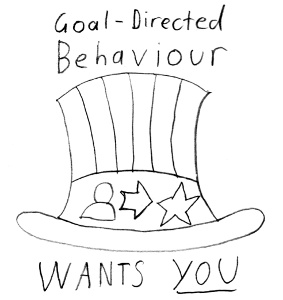Recruitment

There's a neat concept in physiology called recruitment, usually used specifically to talk about muscle fibres: a muscle wants to contract, and the stronger a contraction the more fibres are recruited, starting with smaller, more efficient ones and eventually pulling in everything available. Similarly, on a large scale you can talk about muscle recruitment, where muscles are used to implement some movement strategy, starting with the most efficient and moving to less efficient ones as required.
I think this is a neat metaphor for general use: you have a macro-level goal and you recruit micro-level resources to achieve it. At first, you're going to recruit the best and most efficient resources, but if those resources aren't enough then you recruit less and less efficient ones to make up the numbers. It dovetails nicely with something I wrote before about habits as raw material: habits are something you can recruit to achieve your goals. If you have lots of resources available, you can recruit the best of them to achieve what you want.
But what if you don't have the best resources available? I wrote recently that my prototypes have been acting like stages of a larger project. I had even noticed right at the start that my prototypes seemed to want to get large and try to turn into mini-projects. Why is this? I believe one answer is that I didn't create an outlet for small projects, which is something that I clearly enjoy doing. In other words, my macro-level desire to do bigger projects was recruiting my prototype resources. That, in turn, was making it more difficult to do actual prototype-sized prototypes.
The physiological equivalent is called compensation; when some injured, absent or weak muscle is unable to perform the movement you want, your brain will recruit secondary muscles to get the job done. This leads to two problems: the secondary muscles are overused (and sometimes get injured themselves), and the primary muscle becomes underused and weak. It works fine in the short-term, but often leads to chronic issues in the long-term.
In my case, it would seem that I am compensating for the lack of a developed habit for creating small projects by recruiting my prototypes to do it. The obvious answer is to create that project habit. I originally avoided this because I wanted to focus on the prototypes without getting distracted. I think now that, rather than being a distraction, projects may actually contrast well with prototypes. Having a specific place for mini-projects will remove the temptation to abuse my prototype resource for something it wasn't designed to do.
In general, it seems like a useful activity to think about whether the structures, systems and habits in your life are actually the right ones for the goals you have. If not, you may end up recruiting them for your needs anyway, just because the right resources were unavailable or underdeveloped. Compensating in this way still works, but much less efficiently, and can end up causing other problems.